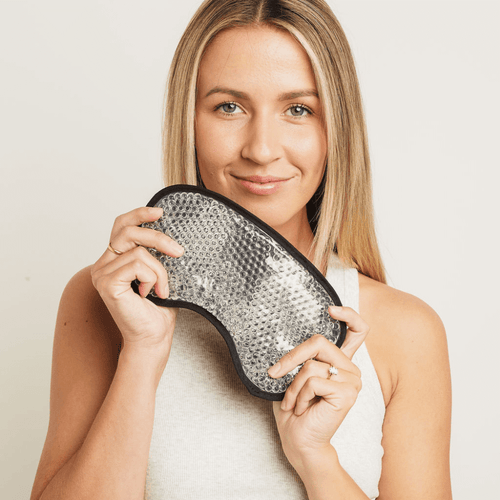Stress is a normal part of life, and it’s something that affects us all. Whether it’s caused by work or financial worries, or simply by the daily pressures of life, stress can have a huge impact on our physical and mental health. But did you know that sleep can actually play a big role in reducing stress? In this article, we’ll take a look at how getting enough quality sleep can help to reduce stress levels and provide long-term benefits for your health.

The Link Between Stress and Sleep
It's no secret that stress can have an enormous impact on our sleep—a lack of sleep makes us more likely to feel overwhelmed by everyday problems and events. On the other hand, getting enough restful sleep will make us better able to cope with stressful situations.
So, how does this work? Well, when we are stressed out, our bodies release certain hormones such as cortisol which leads to an increase in heart rate, blood pressure, and alertness. This is known as the fight-or-flight response; it’s a survival mechanism designed to help us respond quickly in dangerous situations. However, when we are exposed to stress for long periods of time, this response never turns off—and that’s where the problem lies. When we don't get enough restful sleep, these hormones remain active and make it difficult for us to relax and de-stress.
Stress is a common problem for many Australians.
Stress is your body's response to the demands and pressures of life. It can be caused by both positive and negative events, such as getting married or starting a new job. Stress is usually experienced in both physical and emotional ways. Physically, it can cause elevated heart rate, headaches, muscle tension, digestive issues, and fatigue. Emotionally, stress often manifests as anxiety or depression. Everyone experiences stress in different ways and it can range from mild to severe.
It can be caused by too much work, too little free time or even something as small as an unfulfilled promise. But whatever the source, all of us experience stress to some degree. Unfortunately, when left unchecked, stress can have serious consequences on our mental and physical health.
One of the main issues with unmanaged stress is that it affects our ability to get a good night’s sleep. When we are stressed out, we tend to stay up late worrying about what needs to be done the next day or thinking about things that have gone wrong in the past. This lack of sleep then causes more stress because we are too tired to handle daily tasks and responsibilities properly. It’s a vicious cycle that can be difficult to break without making some changes in your lifestyle.
If I Am Stressed Can I still Sleep well?
Yes, it is possible to sleep even when feeling stressed. Stress can make it harder to fall asleep and stay asleep, but the key is to focus on your wellbeing during times of stress by taking steps such as getting regular exercise, practicing relaxation techniques, and developing good sleep habits that can help alleviate stress.
How Do I Know If I Am Stressed?
Stress can manifest in both physical and emotional ways. Common physical signs of stress include headaches, muscle tension, digestive issues, fatigue, and an elevated heart rate. Emotional signals may involve feeling overwhelmed or anxious, difficulty concentrating, irritability or feeling withdrawal from friends and family. If you are experiencing any of these symptoms on a regular basis, it is possible that you are stressed.
The Benefits of Quality Sleep
The good news is that getting enough quality sleep can help to reduce stress levels significantly—and there are many benefits associated with doing so. For one thing, quality sleep will ensure that your body has time to reset itself; this means that you'll be better equipped to handle stressful situations without feeling overwhelmed or exhausted. Furthermore, research has shown that people who get enough quality restful sleep tend to be less irritable than those who don't; they also report feeling more relaxed during their waking hours. Finally and perhaps most importantly - getting enough quality restorative sleep will help you think more clearly and make better decisions throughout the day; this could mean making smarter choices in times of high stress which may lead to improved outcomes overall.
Tips for Getting Quality Sleep
Now that you know why getting enough quality restorative sleep is so important when it comes to reducing stress levels, let's take a look at some tips on how you can ensure you're getting enough rest each night:
• Make sure your bedroom is quiet and dark: Try using blackout curtains or an eye mask if needed; this will help create an environment conducive for deep relaxation.
• Stick to a regular sleeping schedule: Going to bed at the same time each night helps your body develop its own rhythm and become accustomed to deep restful sleep each night.
• Avoid screens before bedtime or use blue light glasses: The blue light from phones or televisions can negatively affect our ability to fall asleep quickly; try reading a book instead!
• Exercise regularly: Regular physical activity helps promote healthy sleeping patterns which in turn helps reduce stress levels overall.
• Talk about your feelings with someone close: Talking about your feelings with someone close may help ease some of the pressure associated with stressful situations; having someone understand what you're going through can also be therapeutic in its own right!
Getting proper restorative sleep is crucial when it comes reducing our overall levels of stress—not only does it give our bodies time to reset but it also helps us think more clearly when faced with challenging situations during our waking hours. Of course there are many factors at play here but following some simple tips such as maintaining a consistent sleeping schedule or avoiding screens before bedtime can go a long way towards helping us get the quality restful sleep we need each night! So if you're looking for ways on how to reduce your stress levels then make sure you prioritise getting plenty of shut-eye!




















